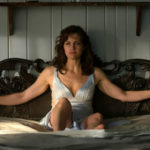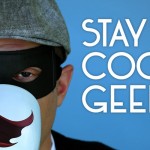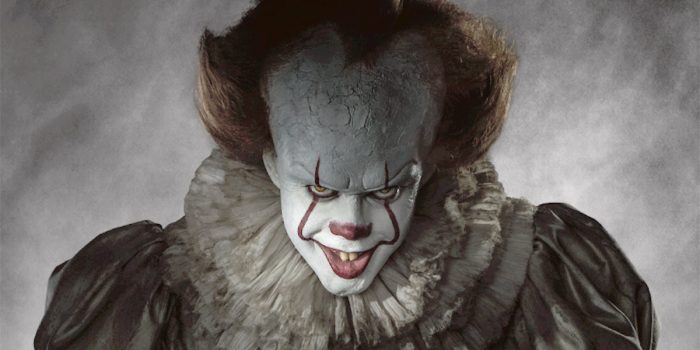
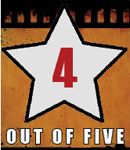
Director Andy Muschietti's It, the second adaptation of Stephen King's beloved 1986 horror tome, isn't overly terrifying. It doesn't convey a consistent sense of dread. Nor is it any more gruesome that what you find on basic cable on a weekly basis these days. But It is a classically constructed horror film (itself a rarity these days) that is wildly successful at everything it does try to do. The movie is exciting, funny and heartfelt. It's just scary enough that arms will be grabbed by many a date during its run time, but the spooks come in a carnival funhouse kind of way. You jump and then you laugh and then you wonder what deranged lunacy the film is going to throw at you next.
To be fair, the film is only an adaptation of half of King's book, choosing to focus entirely on the kids who battle an evil entity usually disguised as a clown named Pennywise that terrorizes their hometown of Derry. (Round two of the fight, featuring the same characters as adults, is being saved for the sequel we damn well better get.) King's book was set in the '50s and '80s, but Muschietti has jumped everything ahead 30 years, setting the first film in 1989 which would allow the sequel to occur in present day. The time shift doesn't affect much as the core of the film is really the relationship between the characters, a group of young outcasts — each dealing with their own individual plights either at school or home — who dub themselves "The Losers Club" and decide to square off against an evil they barely understand.
Their leader is Bill Denbrough (Jaeden Lieberher), a lanky stutterer whose younger brother, Georgie, takes a paper-craft boat out for a curbside voyage during a rainstorm and is murdered by Pennywise in the film's opening scene. In the book, Georgie's body is discovered immediately, but, in the film, Pennywise drags Georgie into the sewer with him, leaving Bill to hope that his brother might still be alive. It's a solid narrative change that gives Bill further motivation for tracking down Pennywise beyond ill-advised revenge and "hey, somebody's gotta do it."
Bill's initial crew includes motor-mouthed jokester Richie (Finn Wolfhard, who you'll recognize from Stranger Things); Eddie (Jack Dylan Grazer), a hypochondriac with an overbearing mother; and Stan (Wyatt Oleff), a Jewish boy lacking a backbone and his father's respect. Along the way, they pick up three more club members: overweight, socially awkward Ben (Jeremy Ray Taylor), home-schooled orphan Mike (Chosen Jacobs) and, most importantly, Beverly (Sophia Lillis), the group's lone female member who is abused by her father and eventually binds the whole group together either through friendship or young love.
The film sinks or swims on these kids, and I'm happy to report that, for the most part, they're phenomenal in the roles. Lillis has the presence of a movie star at a mere 15 years old, and I'm guessing she'll be the newest crush of every teenage boy who sees the film. Meanwhile, Wolfhard gets all the best dialogue — filled with all the foul-mouthed, R-rated insults you might remember if you grew up in the 1980s — and is an absolute riot as Richie. Considering how obviously influenced Stranger Things was by It and King's works as a whole, it's kind of bizarre to see the same child actor show up in both, but Wolfhard is so great here I can't imagine anyone fretting over it. Lieberher, Grazer and Taylor are all also strong, bringing Bill, Eddie and Ben to life in ways fans of the books will be thrilled with. The two weak links end up being Mike and Stan. It's no fault of the actors — they're both fine — but those two parts feel underwritten compared to the rest.
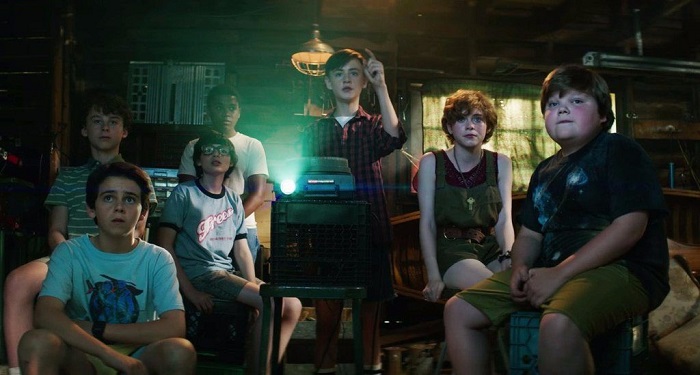
Of course, the other main role is Pennywise himself, a difficult part for any actor, not only because whomever is cast will get compared to the great Tim Curry, who memorably played the killer clown in the 1990 miniseries version of It, but also because they'll be buried under makeup and assisted by effects-work that could easily end up looking silly instead of scary. And based on photos and the early trailers, I know my biggest concern was that his version of Pennywise didn't look quite right. The design screamed too much Juggalo, not enough existential terror. I'm happy to report that thanks to Bill Skarsgård's excellent performance, those worries were completely ill-founded. Skarsgård uses his voice like a weapon, often starting his scenes with a disturbing, high-pitched chirpiness before dropping his voice into a growl. He scampers around maniacally and, with a heavy CG assist, contorts his face and body into impossible configurations that give a glimpse of the true evil within. He's a fucking menace in the most perfect and delightful of ways.
Except for some tinkering with the climax, It largely follows the story as it's laid out in the book. The Losers Club unravels the mysteries of Derry, which seems to fall pray to Pennywise's wrath about every three decades, and eventually tracks the demon first to a derelict haunted house and later into the sewers under the town. Muschietti treats every sequence as classic horror spectacle, putting Pennywise and his various manifestations right in the center of the action and setting everything to composer Benjamin Wallfisch's lush orchestral score. The haunted-house section is a standout, with Pennywise manipulating the structure itself to separate the kids. At one point, part of the group is presented with three doors, each labeled in blood, that read "SCARY," "VERY SCARY" and "NOT SCARY AT ALL." It's that kind funny/macabre vibe that drives much of the film.
In addition to Pennywise, the Losers Club also has to contend with a group of bullies, and if there's anything in the film that doesn't work, it's this subplot. Though the action has been moved to the '80s, these switchblade-carrying lunatics still feel like a remnant of the book's '50s setting. They seem unrealistically evil (which, interestingly, was also a problem with a similar set of characters in Stranger Things). Look, I was a kid of the 1980s who was occasionally bullied, but the worst I ever got was a wedgie after gym class. I certainly never had a high-school psychopath try to carve his initials into my stomach. I also don't think the film does a good enough job conveying that the lead bully's escalating cruelness is directly a result of Pennywise's influence. These secondary antagonists are an important part of the story's tapestry as laid out by King, so I don't think it's something that could have been cut out. I just wish it was handled with the assuredness of the rest of the film.
Speaking of King, fans of his book will leave quite happy, as unlike last month's butchered big-screen version of The Dark Tower, It does its best to pay proper homage to things that won't register with non-readers. The word "Deadlights" is never spoken, but you'll know them when you see them. Bill's bike has "Silver" scratched into its chrome, and the fact that a turtle made of LEGOs shows up at one point is certainly no accident. Still, you don't have to be a reader to feel a surge of happiness jolt through your body for each victory the Losers notch, be it against Pennywise, the bullies or their own personal demons. It follows its jump-scares with moments that will have you pumping your fist and cheering, and that splendid mix results in not just the most accomplished Stephen King adaptation in years, but one of the very best since the guy from Maine first started putting words to paper.



